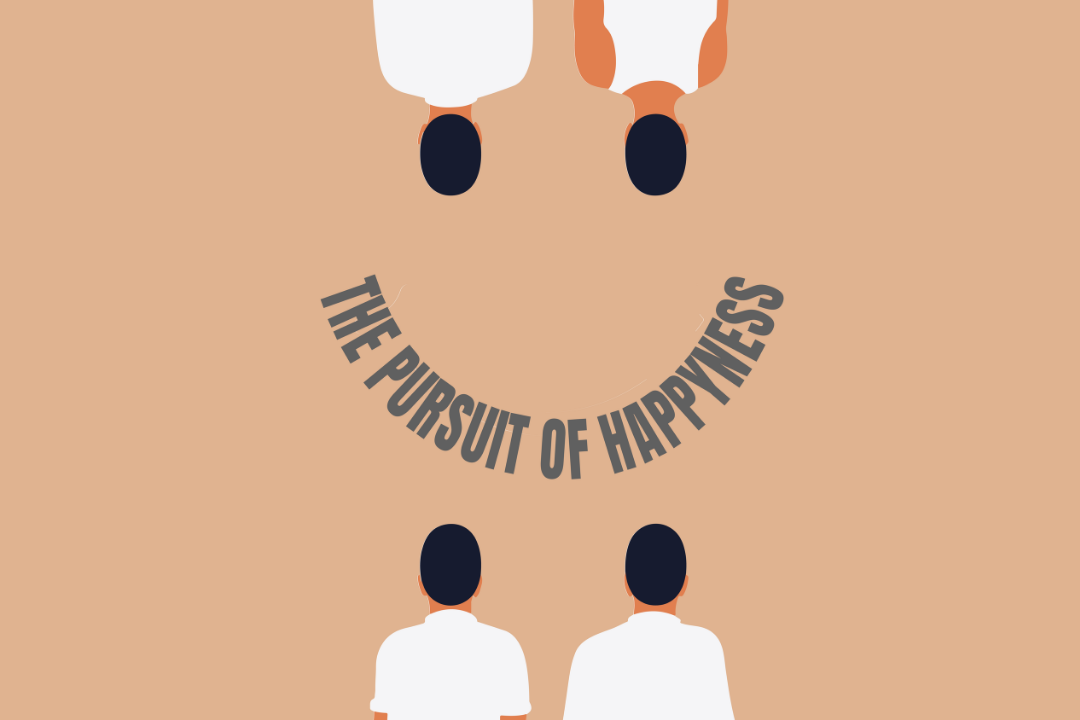I am going to tell you about one of my favorite studies that I happened to come across during my Masters degree. The research basically focuses on the spread of happiness and talks about the impact of other people's happiness on us. As social beings, I think that very often we include food, water and shelter as essentials for survival. But we mostly tend to forget another crucial and extremely important facet - human connections! Here’s the thing. Our relationships (and connections with others) play a huge role in determining our mental and physical health, resilience and most importantly, our happiness levels.
Time for some hard truth. We are embedded in our social networks!
Happiness is an emotion that is fundamental to our existence. There are innumerable books, blogs and resources out there teaching us how we can be (more) happy. In fact, one of the most popular courses at Harvard University was “How To Be Happier”. This emotion is so central to our existence that WHO is wholeheartedly making a push to include happiness as a part of our health.
Researchers in various fields like psychology, neuroscience, biology, economics and medicine have discovered several factors that have the potential to make us happy (or unhappy) that consist of genes, socioeconomic status, job security, income, illness and bereavement. These studies, however, do not explicitly talk about the role that the happiness of other people has on our own happiness.
There is some evidence that suggests our emotional states are transferable. In other words, emotions are contagious to a certain extent, and in certain conditions. This could mean happiness too has a potential of spreading via our social networks. The Framingham Heart Study that followed 4739 individuals from 1983 to 2003 shows that an individual's happiness depends on the happiness of their social network. The relationship between people’s happiness stretches upto three degrees of separation - for example friends of one's friends’ friends.
People who are surrounded by happy people are more likely to become happy in the future, according to this study. This is not due to the tendency of people to associate with similar people. So if your friend who lives within a kilometer from you becomes happy, it increases the chances of you being happy by upto 25%! Happiness can ripple through social networks, creating clusters of happy and unhappy people (although the relationship depends on geographical location and the effect of the spread can decay over time!)
We do not know yet the exact causal mechanism of how happiness is spread. Maybe happy people like to share their good luck by being helpful and generous to others, or maybe they do so by being nicer and less hostile towards others. See, happiness is not only concerned with the individual's choice or an isolated experience, but also as a species, we are collectively responsible for it, because happiness is (and always will be) a collective phenomena.
This means that if we make one person happy, it can certainly make you happy too!
References
- De Gargino JP. Children’s health and the environment: a global perspective. Geneva: World Health Organization, 2004.
- Fowler J H, Christakis N A. Dynamic spread of happiness in a large social network: longitudinal analysis over 20 years in the Framingham Heart Study BMJ 2008; 337 :a2338 doi:10.1136/bmj.a2338
- Papa A, Bonanno GA. Smiling in the face of adversity: the interpersonal and intrapersonal functions of smiling. Emotion 2008;1:1-12.
- Surakka V, Hietanen JK. Facial and emotional reactions to Duchenne and non-Duchenne smiles. Int J Psychophysiol 1998;29:23-33.
- Zajonc RB. Emotion and facial efference: an ignored theory reclaimed. Science 1985;5:15-21.


